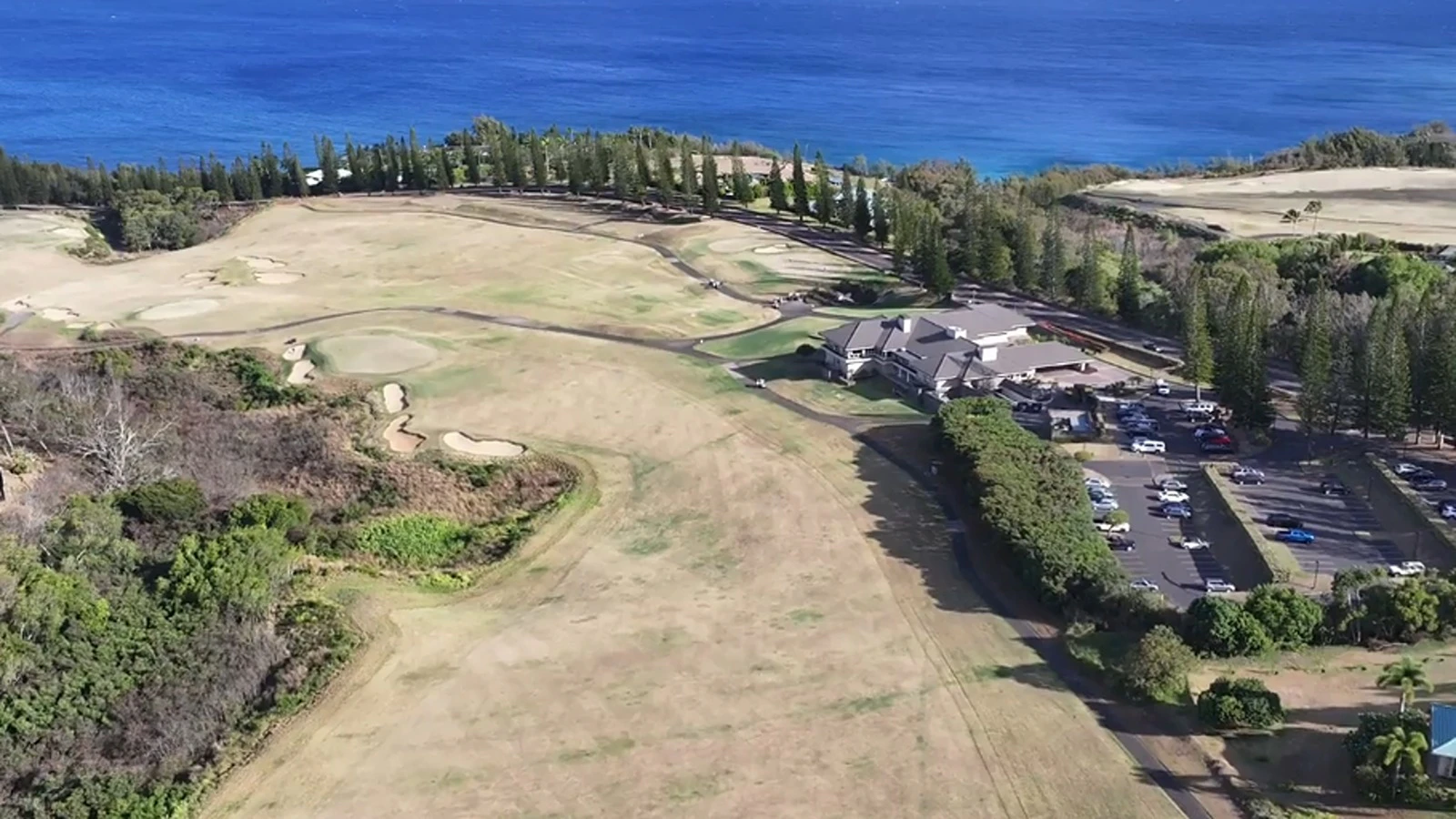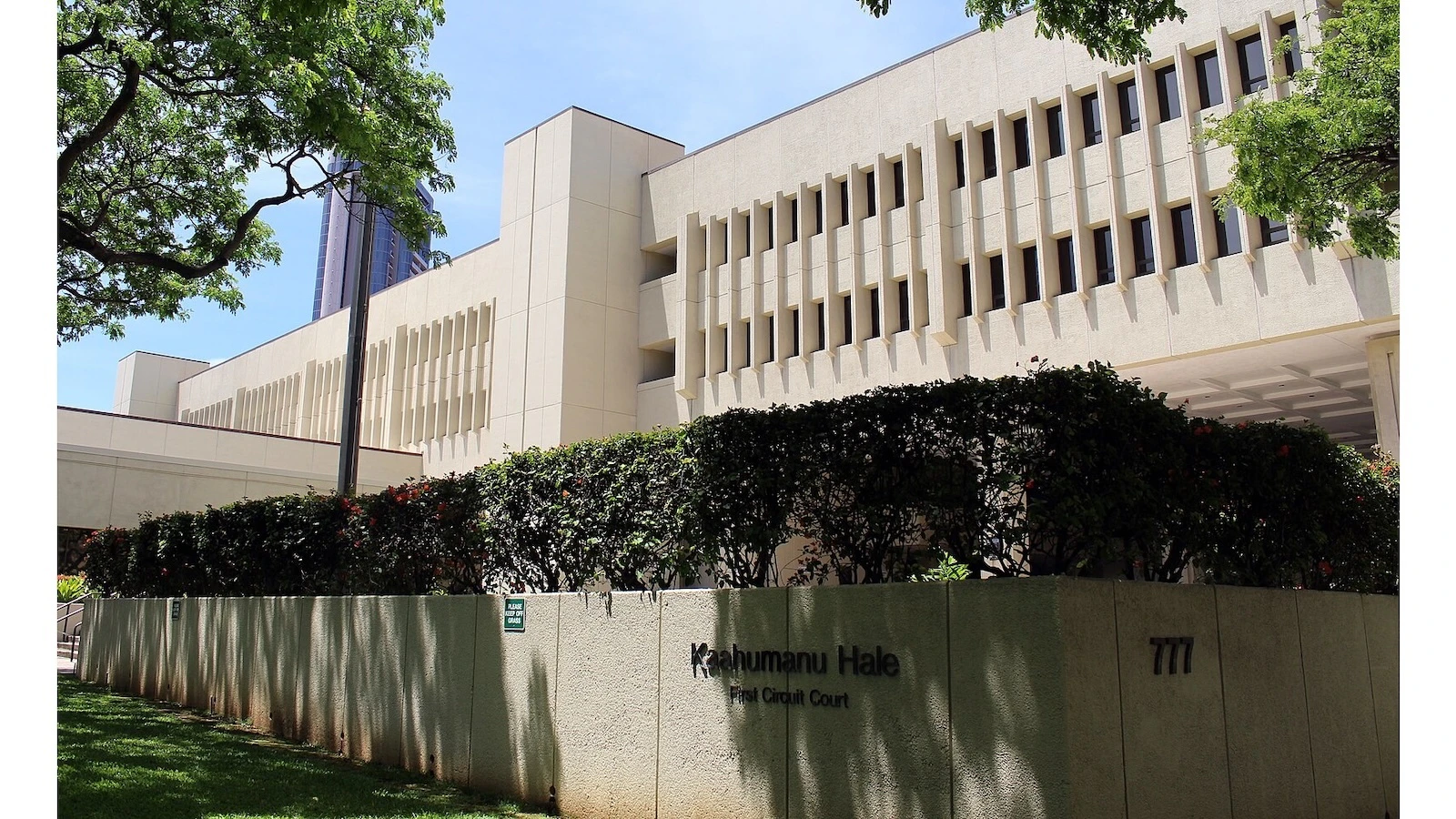The winner of a lawsuit against a County of Hawai‘i agency believes his verdict can help others who are struggling with building permit woes across the state.
California native Shahzaad Ausman has been embroiled in a dispute with Hawai‘i Island’s Department of Public Works for three years, with a home renovation project held up by conflicting and contradictory permit rules.
Ausman told Aloha State Daily that he purchased a home in Miloli‘i, on the west side of the Big Island, in 2021. That home was originally built in 1987, but after 30 years of coastal exposure, it was in need of renovations.
Ausman was not the home’s first buyer, he said. A buyer from Washington State had purchased the home a few years prior and had obtained the necessary permits from the county for the renovation in 2020.
“And then COVID hit right after,” Ausman said. With travel to Hawai‘i all but impossible, the previous buyer was unable to visit their property, let alone complete the project, and so they listed it for sale again, and Ausman eventually purchased it.
When Ausman took possession of the property, he said he checked to make sure all the permits on the house were valid. With the county’s confirmation, he began remodeling work in early 2022.
But when Ausman requested a county inspection, nobody from the Department of Public Works came, he said. Despite multiple calls to the department, he said he received no response until June 2, 2022, when they told him his permits had expired the day before.
“I said that didn’t make sense, because the permit should have been good for five years,” Ausman said. “They said no, it was the building permit from 1987 that had expired.”
Ausman said the county’s transition to its new online permitting system — the Electronic Processing and Inspection Center, or EPIC — had forced the expiration of his and many other property owners’ permits.
When the county transitioned to the EPIC system, DPW decided to cancel all expired building permits. In 2021, when DPW announced the impending cancellations, the department stated that there were 40,000 building permits listed as “expired" in its system.
But some pre-digital permits became listed as “expired” even though they had passed final inspection, although the department offered a grace period through 2022 that would allow such permit holders to apply for extensions. On June 1, 2022, that grace period ended, with as many as 6,840 building permits on the chopping block, according to prior reporting from the Hawaii Tribune-Herald.
Ausman reasoned that the 1987 permit logically must have passed final inspection, because DPW would not have approved the 2020 alterations permit if it had not. But, later in 2022, he said DPW told him that not only was the entire house unpermitted, but all subsequent permits were null and void as a result.
If Ausman wanted to live in the house, he would have to bring it up to current code and get a shoreline management area permit, which he called “a trap.”
“I would have to change every stick and nail of the house to bring it up to code,” Ausman said. “I’d basically have to rebuild the house.”
Ausman said he had no other choice than to bring the matter before the county’s Board of Appeals, which ruled “arbitrarily and capriciously” to uphold DPW’s decisions. Ausman noted that the same attorneys who advise the Board of Appeals advise DPW.
Following this, Ausman appealed the board’s decision in 2023, filing a lawsuit against the county and Stephen Pause, then the Public Works Director.
Oral arguments in the case were heard in February, and in March the Third Circuit Court rendered a verdict in favor of Ausman.
“I couldn’t believe I’d won,” Ausman said. “It’s been a fight of three years, and they tried to wear me down, but I won.”
The court’s ruling stated that DPW acted in good faith when it issued the 2020 alterations permit, and that Ausman was reasonable in assuming that the permit remained valid when he purchased it, based on official assurances from the county.
Consequently, the ruling found that it would be “unjust and unreasonable” for DPW to now revoke the 2020 permit and ordered the Hawai‘i County Board of Appeals to reverse its decision.
But even with a legal victory, the fight isn’t over, Ausman said. Following the verdict, he said the county reached out to his attorney — Kailua-Kona lawyer Patrick Wong — with a settlement offer.
“What is there to settle?” Ausman laughed. “I f---ing won.”
Ausman suspects that the county fears his case being used as legal precedent for other property owners whose permits have been similarly left in limbo following the EPIC transition. He added that the City and County of Honolulu is also shifting its permitting process from the current POSSE software to a new platform, Clariti, that could similarly cause growing pains.
The Honolulu Department of Planning and Permitting announced in March that it would purge inactive permit applications older than one year in advance of the transition, which could impact nearly 2,000 residential permit applications.
Meanwhile, Ausman’s Miloli‘i home still remains incomplete. Despite the verdict, he said DPW still hasn’t restored his permits, although he added that Wong is still drafting documents to officially enter the court order.
“I’ve probably spent more than $250,000 on it, including attorney’s fees,” Ausman said, estimating that the work has been more than 70% complete for years.
Ausman said his case should serve as a warning to other homeowners.
“If they can do this to me, they can do it to so many more,” Ausman said. “You’ve got to be on top of it, keep researching for yourself and fight for your rights.”
Hawai‘i County DPW declined to comment on a legal matter, and referred ASD's queries to Hawai‘i County Corporation Counsel. ASD also reached out to Patrick Wong, Honolulu DPP and Corporation Counsel for additional comment.





